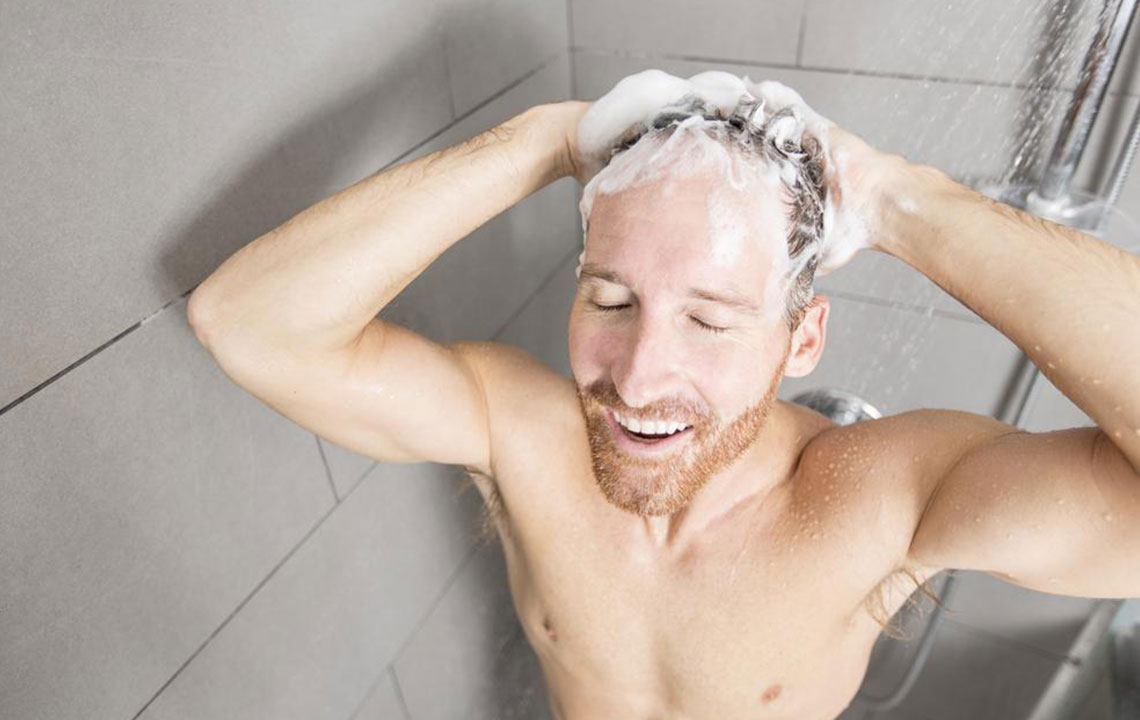Best Shampoos for Hair Loss Restore Your Crowning Glory
As small and non-debilitating as the problem may seem, hair loss does affect your self-esteem for, after all, your mane is your crowning glory.
Caused by aging, genetics, side-effects of certain medication, or diseases, loss of hair can be treated in many ways such as through drugs, hair transplants, and scalp reduction treatment.
One good way of treating hair loss at home is through the use of hair loss shampoos.
These products prevent loss of hair via different mechanisms such as hair follicle stimulation, improved blood circulation to the hair follicles, provision of nourishment, and moisturizing the scalp and hair.

The good news is that the market today is flooded with umpteen hair loss shampoos that leave you spoilt for choice.
To make it easier for you to choose one that meets your requirements, here is a list of the best shampoos for hair loss.
Hair Surge Shampoos
These products contain caffeine, ketoconazole, and saw palmetto that together reduces hair loss and boosts growth.
Caffeine stimulates hair follicles to foster hair growth and improves hair health.
Ketoconazole confers anti-inflammatory and antifungal effects to help treat hair loss due to inflammation or fungal infection in the scalp.
Saw palmetto blocks the chemical pathways that lead to loss of hair due to DTH formation.
Best Shampoos for Hair Loss With Biotin, Niacin, And Other Vitamins
Biotin, one among the B-complex vitamins, boosts the growth of hair and improves hair health. It also prevents dryness of the hair and scalp and renders the strands more elastic.
On the other hand, niacin, another B vitamin, enhances blood circulation to the hair follicles to promote their development.
Through these actions, these B vitamins, along with other vitamins, nourish, moisturize, and strengthen the hair to boost hair growth.
Best Shampoos for Hair Loss With Different Oils
Different oils present in shampoos include argan oil, jojoba oil, emu oil, pumpkin seed oil, black cumin seed oil, chia seed oil, and various essential oils.
Each of these oils confers its own unique effect that addresses the cause of hair loss to prevent the condition.
- Argan oil does not allow DTH to dry and shrink hair follicles and fosters the health of the scalp.
- Jojoba oil inhibits moisture loss from the scalp and ameliorates the production of natural scalp oils to enhance the overall scalp health.
- Together, argan and jojoba oils can also treat dandruff, a leading cause of hair loss.
- Emu oil treats scalp issues such as dandruff and dermatitis.
- Chia seed oil, a rich source of omega-3 fatty acids, boosts blood circulation and nourishes the hair follicles.
- Seed and essential oils treat infections in the scalp, correct damage to the hair, and make the hair shafts strong.
Best Shampoos for Hair Loss with Lipids and Peptides
Lipids present in shampoos include gamma-linolenic acid and medium chain triglycerides.
- Gamma linolenic acid stimulates the growth of hair and prevents breakage.
- Medium chain triglycerides have anti-fungal properties that help to treat fungal infections that affect scalp and hair growth.
Peptides such as pentapeptides increase the production of collagen, which in turn, stimulates the skin follicles to produce hair.
Best Shampoos for Hair Loss With Natural Ingredients
The best shampoos for hair loss are the ones that contain extracts of natural components such as saw palmetto, nettle, aloe vera, seaweed, gooseberry, false daisy, fenugreek, shikakai, and soapnut.
Importantly, such shampoos are free of harsh chemicals such as parabens, formaldehydes, and sulfates that make the hair follicles weak and cause hair loss.
Each natural ingredient works its own magic to reduce the loss of hair.
- Saw palmetto and nettle inhibit DTH and prevent dryness and death of hair follicles.
- Aloe vera confers anti-inflammatory effects, which helps treat hair loss due to inflammation of the scalp. It also moisturizes and conditions the scalp.
- Seaweed decreases thinning of the hair and increases hair volume.
- False daisy rejuvenates the hair and boosts hair growth.
- Shikakai, gooseberry, soapnut, tea tree, neem, and fenugreek also promote hair health.
Given the vast choices for the best hair loss shampoos available, with each one containing multiple ingredients in different combinations, it becomes difficult to choose a product that best suits your needs.
One good way of doing this is to understand your scalp and hair type.
For example, shampoos with aloe vera work well for frizzy and dry hair, whereas those with argan oil suit oily scalps should avoid it. Similarly, shampoos with lipids and peptides are good for hair that has undergone color treatment.
Another important point to remember is to use the hair loss shampoo as per the instructions for the best results.
Normally, such shampoos must be left on the hair for a few minutes after application as this maximizes the nutrient absorption and hair growth promoting effects.
So, the next time you worry about your thinning hair, just choose the right hair loss shampoo and restore the beauty of your crowning glory with the best products mentioned above.

